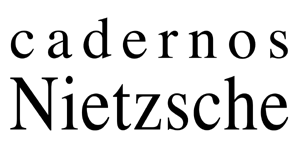Resumo em Português:
Resumo O artigo é uma tentativa de explorar a hipótese controversa de que possa haver uma profunda afinidade - até agora não identificada - entre a concepção de "luta por reconhecimento" [Kampf um Anerkennung] em Hegel e a concepção da dinâmica da "vontade de poder" [Wille zur Macht] em Nietzsche. Esta hipótese diz respeito ao modo como a luta e a dominação estão implícitas na noção hegeliana de reconhecimento, isto é: diz respeito à dinâmica intersubjetiva das formas falhadas de reconhecimento. A luta e a dominação (bem como a violência) são conceitos fundamentais na concepção do reconhecimento em Hegel - mas, ainda assim, conceitos meramente operacionais na obra de Hegel, enquanto em Nietzsche se tornam temáticos, porque o conceito de "poder" se torna temático. O que o artigo procura mostrar é que a hipótese nietzschiana da "vontade de poder" é relevante no debate contemporâneo sobre "reconhecimento e poder" porque permite uma descrição adequada das dinâmicas intersubjetivas em que o reconhecimento recíproco não é alcançado e o que subsiste nelas são relações de luta e dominação, ou seja, vontade de poder qua vontade de dominação. Mas isso só é assim porque a hipótese nietzschiana da "vontade de poder" implica uma "doutrina dos afetos" e, por isso, uma concepção de "poder" [Macht] em termos de "ação à distância", i.e. de influência intersubjetiva mediada por percepções, interpretações e perspectivas. Esta concepção de "poder" implica atribuir ao desejo e à vontade humanas uma natureza "recognitiva", e está longe de implicar a dissolução das relações de poder em processos transsubjetivos de dominação. Daí a afinidade entre Hegel e Nietzsche que o artigo procura evidenciar.
Resumo em Inglês:
Abstract The article is an attempt to explore a controversial hypothesis, which can be stated like this: there is a deep affinity - hitherto largely unnoticed - between Hegel's conception of struggles for "recognition" [Anerkennung] and Nietzsche's conception of the dynamics of "will to power" [Wille zur Macht]. This hypothesis concerns the ways in which struggle and domination are implicitly involved in the Hegelian notion of recognition, that is: it concerns the intersubjective dynamics of failed-recognition. Struggle and domination (as well as violence) are crucial concepts in Hegel's whole conception of recognition - but they are for him operative concepts, whereas in Nietzsche they become thematic, because the concept of "power" becomes thematic. What the article tries to show is that the Nietzschean hypothesis of "will to power" is relevant for the contemporary debate on "recognition and power" because it enables an adequate description of the intersubjective dynamics in which reciprocal recognition is not achieved and relationships of struggle and domination persist, i.e., what persists is "will to power" qua will to domination. However, this is only so because the Nietzschean hypothesis of "will to power" entails a "doctrine of the affects", and hence a conception of "power" [Macht] in terms of "action at a distance", i.e., in terms of intersubjective influence mediated by perceptions, interpretations, and perspectives. This conception of "power" entails a "recognitive" conception of human desire and human will, and, therefore, it would be wrong to claim that Nietzsche's "will to power" involves the dissolution of power-relations in trans-subjective processes of domination. Hence the affinity between Hegel and Nietzsche which the article tries to evince.
